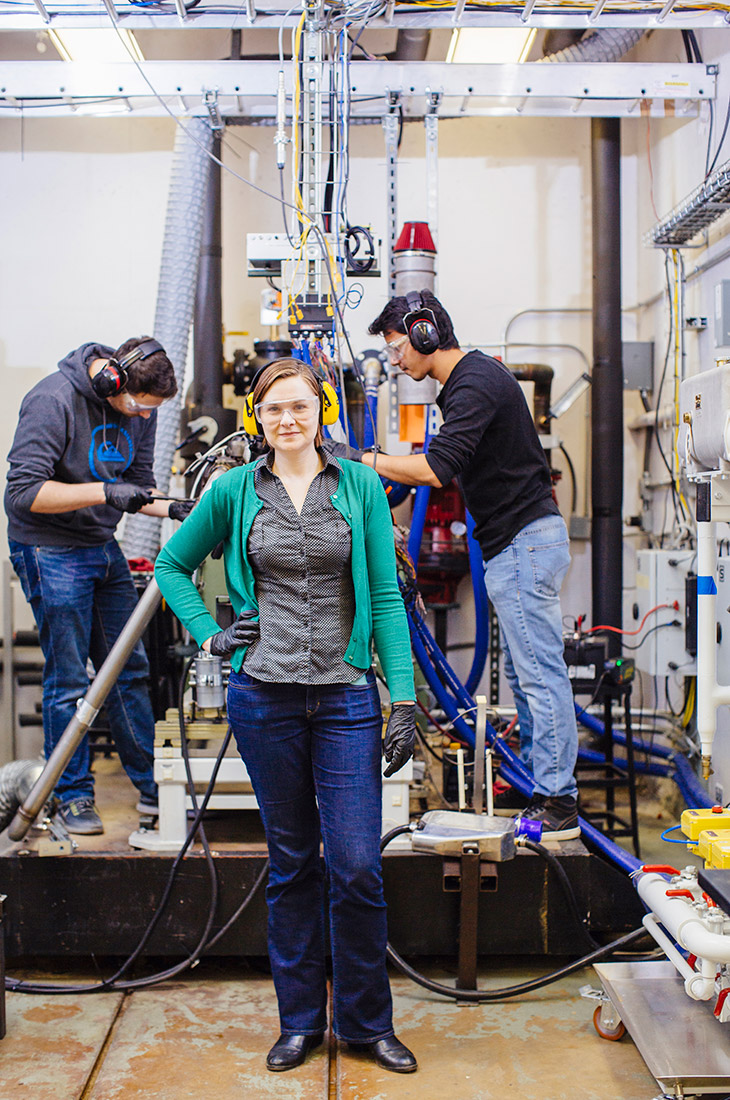
Despite accounting for more than a quarter of the on-road vehicle energy consumption in the United States, heavy-duty trucks and other long-haul transportation account for just 1 percent of on-road vehicles. That’s a significant sustainability concern, one that Illinois Tech Associate Professor of Mechanical and Aerospace Engineering Carrie Hall is tackling—with software.
Hall has created a new computer model that can help enable diesel engines to run on a different fuel with just a software update. She says that the one big obstacle to running a diesel engine on gasoline is the difference in reactivity. Gasoline fuel injected into an engine cylinder normally won’t burn until the engine provides a spark to start the fire, and then the resultant explosion will travel uniformly away from the spark through the engine cylinder. On the other hand, diesel tends to spontaneously combust after it is compressed in the cylinder. The timing is essential as engine efficiency depends on running multiple cylinders in harmony.
To understand how to get the most out of burning gasoline, diesel engines need real-time information on when the fuel has ignited.
Some engine control designers achieve speed in their models by utilizing machine learning techniques or storing large data tables to avoid model calculations, but Hall has taken a different approach. “We’ve been trying to create models that are based on the underlying physics and chemistry, even when we have these very complicated processes,” she says.
Hall began with the complicated version of the calculations and explored ways to simplify them until she found ways to describe the science with equations that were faster to solve, while still achieving the industry standard of accuracy for control models. The result is a more adaptable model. While a pure machine-learning approach needs to be completely retrained for each new fuel, Hall can simply update some parameters that correspond to measurable fuel properties.